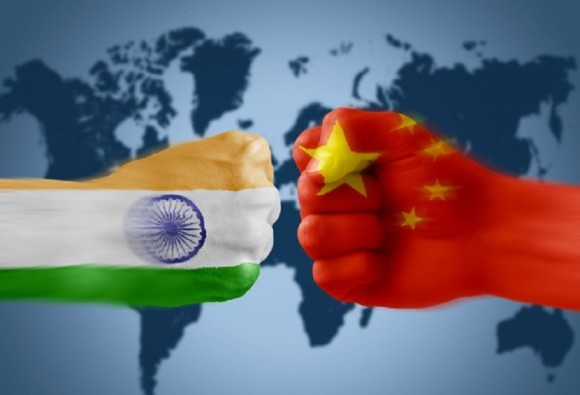Technology Law / Cyber Law
India-China: Beyond the Line

Dependant Pharmaceutical Industry
Chinese imports serve as the lifeline for the Indian pharmaceutical industry. Manufacturing medicines require essential raw materials called API (Active Pharmaceutical Ingredients) of which India imports 80% from China.[10] Approximately 90% of life-saving drugs or antibiotics like cephalosporins, azithromycin, and penicillin, which are extremely essential, are sourced and imported from China, as well.
Figure 1[11]
India once used to be the largest supplier of pharmaceutical products in the world and was self-reliant as early as 1991 with API imports being just 1%. However, now, the country has been reduced to being a mere supplier of finished goods as of 2019, with API imports being 70%. This pattern of decline was seen globally in other countries too with the advent of China as a provider for these APIs. So, if India tries to look for alternatives and focus on countries like US, Vietnam, Japan, Mexico, and certain European countries as alternate sources of import, chances are they won’t be able to fulfill the current demand as they rely on China, way too much. Additionally, the cost of importing from these countries would be considerably higher and would be passed on to the consumers if manufacturers are unable to absorb them.
Investments In Indian start-ups
The Chinese investors over the years have been known to become cornerstones of investments in Indian start-ups. Today whether it be the food sector, entertainment, healthcare, start-up companies, mobile gaming, education sector all have a huge chunk of Chinese investment. The Chinese money has infiltrated the Indian markets and has embedded itself deep into the core sectors of the Indian Economy.
According to Venture Capitalist, Chinese companies like Alibaba, Tencent, TR Capitals, and Hill House have made big investments (around $5.5 billion) in Indian startups. Major Indian brands like Zomato, Big Basket, Ola, Snapdeal, Paytm, Flipkart, Ibibo, Make my Trip, Byjus, etc have all been backed up by Chinese investment firms.[12]
Figure 2[13]
In a report published by Gateway House, a think tank, it was revealed that out of 30 Indian start-ups, 18 are known to have a Chinese investor. Such investment grew from 41.6 billion in 2014 to $ 8 billion in 2019.[14]
Not just start-ups but brands like Oppo fund even small retail shops in lieu of them putting up Oppo’s hoarding and banners. For India to ban Chinese imports, it would also drive these Chinese investors out from the Indian market that can cause inflation and economic downfall. To ensure alternative investments at such short notice so as to help not only the high-end brands but also cater to the business at ground level, would be a strenuous task.




